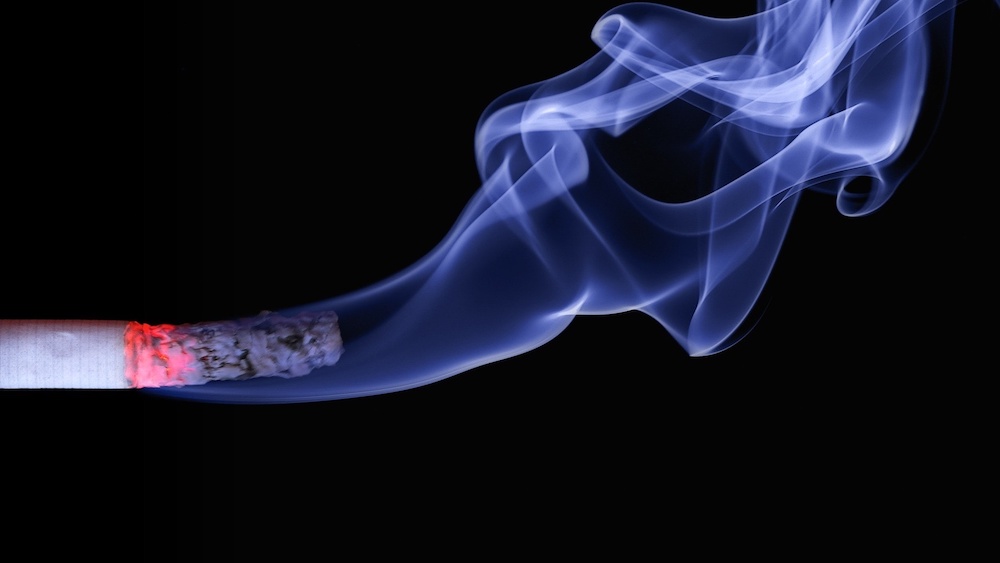If you’re interested in sharing your opinion on any cultural, political or personal topic, create an account here and check out our how-to post to learn more.
Opinions are the writer’s own and not those of Blavity's.
____
It’s no secret by now that laws designed with communities of color in mind aren’t always about protecting or supporting those they target. And recent proposals to ban flavored tobacco products, including menthol cigarettes, which are disproportionately preferred by Black Americans, are no exception.
Passed into law in places like Washington DC and Massachusetts, they’re supposed to protect citizens from an addiction that kills 480,000 Americans a year. But in reality, they’re just paternalistic nonsense that’ll disproportionately harm Americans of color. They also deprive cities and states of revenue for education, social services and other poverty-alleviation and social mobility-fostering measures. Ironically, they may end up harming smokers since they apply equally to reduced-harm alternatives to cigarettes, like vapes.
While the District of Columbia estimates that it’ll lose out on just $3 million in revenue due to its recently passed flavor ban, the actual figure is likely to be much higher. And when Massachusetts became the only state in the country to enact a flavor ban, it lost more than $140 million in tax revenue from menthol sales alone within 11 months. Much of that revenue ended up flowing to neighboring New Hampshire and Rhode Island where tobacco sales spiked. And if smokers don’t go interstate, then they’ll likely turn to the tobacco black market, which already accounts for between 8.5% and 21% of total sales in the United States and causes local and state tax revenue losses of between $2.95 billion and $6.92 billion each year.
Most worryingly of all, these bans contribute to the increased criminalization of Black Americans at a time when issues of systemic racism in criminal justice have been brought to the forefront of national debate. Although Black smokers disproportionately prefer to smoke menthols, they actually smoke less than their white peers. It’s disturbing that a ban is being applied to products favored by Black people, but not equally deadly non-menthol products favored by whites.
Since menthols are disproportionately preferred by Black smokers, illicit tobacco markets that respond to the menthol prohibition will be concentrated in Black neighborhoods and so too will police enforcement of the ban. As the American Civil Liberties Union (ACLU) notes, “policies that amount to prohibition for adults will have serious racial justice implications. Such a ban will trigger criminal penalties, which will disproportionately impact people of color, as well as prioritize criminalization over public health and harm reduction. A ban will also lead to unconstitutional policing and other negative interactions with local law enforcement.”
The police are typically tasked with arresting those who sell “untaxed” cigarettes, including illegal menthol and other products that will flow into neighborhoods. Even before flavor bans, well-intentioned local ordinances against tobacco have already led to shocking instances of police brutality. Four Black teens in Maryland were violently arrested recently. Their crime? Defying an ordinance on outdoor vaping. A particularly high profile and tragic case was that of Eric Garner. Garner was killed by the New York police in 2014 during an arrest for selling loose “untaxed” tobacco. Banning flavored tobacco, including menthols, then, will only exacerbate existing racial disparities in policing over minor offenses.
A better strategy than punitive flavor bans is to encourage smokers who can’t quit to transition to reduced-harm alternatives, such as vapes. Vapes aren’t benign, but they’re at least 95% less harmful way for cigarette addicts to satiate their nicotine cravings than combustible tobacco. Vapes are also widely recognized by international health bodies like Britain’s Royal College of Physicians and France’s National Academies of Medicine and Pharmacy as evidence-backed smoking cessation aids. Studies show they’re at least twice as effective in aiding cessation as alternative nicotine replacement therapies, like patches or gums.
Flavor bans make matters worse in this regard. Flavors are a crucial component of what makes reduced-harm vaping products a more attractive alternative to more harmful tobacco products. Localities that have already experimented with flavor bans have seen vapers return to conventional products, like cigarettes, for their nicotine fix thereby damaging their health.
Flavor ban proposals started to receive support well before George Floyd’s killing. That tragedy, and the protests that followed it, have raised awareness about police brutality and the unjustifiable harms caused by over-policing minority communities for minor offenses that they’re less likely to be arrested for than their fellow Americans. These issues, at the very least, should consign flavor and menthol bans to history’s dustbin.
____
Satya Marar is a policy analyst, senior contributor at Young Voices, former policy director of Legalise Vaping Australia and author of 'Tobacco Harm Reduction: A Formula to Save 500,000 Australian Lives.'

